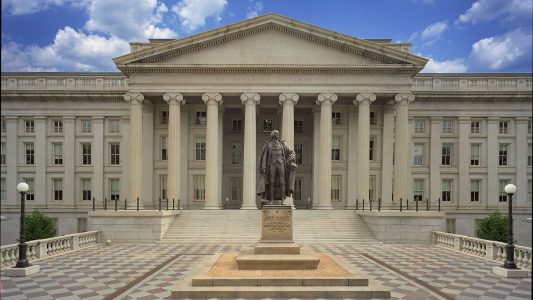Widgetized Section
Go to Admin » Appearance » Widgets » and move Gabfire Widget: Social into that MastheadOverlay zone
Impoundment: Then and Now
The views expressed are those of the author and do not necessarily reflect the views of ASPA as an organization.
By Ben Tafoya
March 7, 2025

The President of the United States decides to order executive branch agencies to withhold funds appropriated for environmental protection, housing and agriculture purposes. States, cities and non-profit organizations are concerned and confused that budgeted funds will not be available, and that will force projects to end. Economists are worried about the impacts on employment from the withdrawal of government spending from an economy trying to respond to various external shocks.
These headlines might seem recent, but they relate to events from the Nixon Administration over 50 years ago. This historical context is crucial for understanding the implications of current events. Concerned about inflation and overall federal spending, the Administration restricted the use of congressionally appropriated funds for their intended purposes, a process known as Impoundment. Dozens of lawsuits ensued, and the issue was brought to the Supreme Court, where a unanimous court ruled that the Administrator of the Environmental Protection Agency must allocate the total amount of the grant funds for water pollution control.
The Court’s finding upheld the decision of the Appeals Court and the lower Court that Congress controlled the power of the purse, and the executive had little latitude involving when spending could occur. Congress then incorporated this into law, passing the Impoundment Control Act of 1974. Section X of the Act lays out a recession process whereby the executive branch asks Congress for permission to withhold funding. A 45-day window begins whereby the President can avoid spending the money while Congress decides whether to alter the appropriation.
Impoundment can also be considered a way for the President to exercise a line-item veto over appropriations after the fact. While a vast majority of states offer their Governor some form of line-item veto, the Supreme Court deemed Congress’s attempt to offer such a power unconstitutional in a 1998 decision. The Court stated firmly that only Congress could change a law. Appropriations are a law.
The decisions recognize that underspending will occur in the normal course of government. Positions become open for a period and are not immediately filled, or contracts do not cost as much as budgeted. These items are fine and are somewhat expected, and monies get returned to the Treasury (at least virtually). It is the conscious decision to withhold spending that was congressionally mandated that runs afoul of the decisions.
We are facing similar issues today. The new Administration has suspended spending programs, dismantled agencies and fired workers, all funded through Congressional actions signed into law by a President. The Administration has stated that the Impoundment Control Act was unconstitutional. They argue that it is the President’s role to make decisions on behalf of the executive branch. These decisions govern who works there and what they do, and appropriations are simply a ceiling on spending allowed by Congress.
However, with the complexity of modern government, the interruption of ongoing programs has wide-ranging consequences. For example, the Massachusetts city of Holyoke has announced that over $19 million in environmental justice grants are imperiled. The funds were to be used to improve wastewater treatment, greenery and roadways for this low-income community. Communities on Cape Cod that are required to make significant investments in wastewater treatment are concerned about federal funding freezes. The state needs significant federal help to fund the clean water revolving fund.
There are already several lawsuits challenging the Impoundment of funds. Since the Administration objects to the Impoundment Control Act, it will not avail itself of the provision to pause spending while they seek a Congressional action for rescission. These lawsuits, which will eventually find themselves in front of the Supreme Court, are crucial in deciding issues related to the employment protections of federal workers, the wholesale folding of federal agencies, withholding of grant funds due to cities and states’ protection of immigrants, access to personal information through IRS systems and more including Impoundment.
The uncertainty of the outcome of these clashes will hamper state and local governments in their effort to provide services and implement capital projects. In turn, this will raise issues related to the economy. GDP measurement includes spending by state and local government. If successful, the Administration’s efforts to severely curtail federal government employment will hamper consumption and raise government benefit claims nationwide, particularly in DC, Maryland and Virginia. This can lead to further problems with state and local tax revenues, hampering their fiscal efforts to meet constituent demands. Resisting Impoundment requires the Courts and Congress to take actions which respect the separation of powers, allows Congress to act on the budget and makes the American People feel confident that the law will be respected regardless of who manages the executive branch.
Author: Dr. Ben Tafoya, a retired public administrator, is an adjunct faculty member teaching economics at Northeastern University in Boston. Ben is the author of a chapter on social equity and public Administration in the volume from Birkdale, Public Affairs Practicum. He can be reached at [email protected] or on BlueSky @PolicyBen . All opinions and mistakes are his alone.


Follow Us!